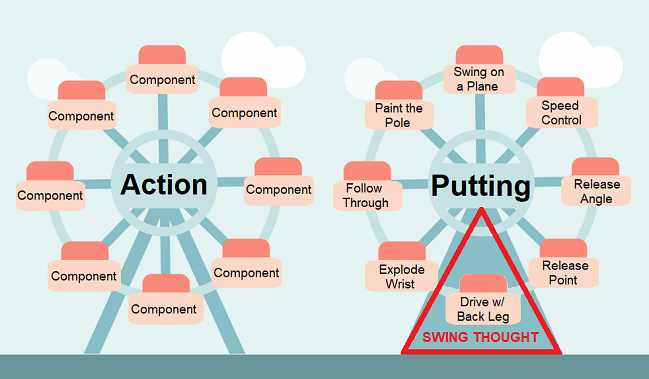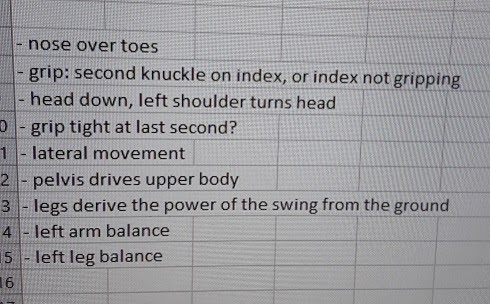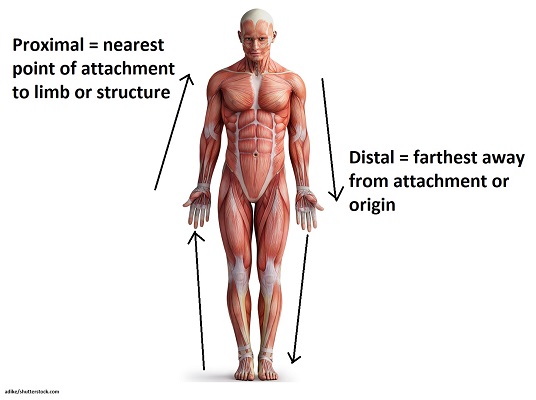Hey all, I've been playing for about 8 months now and this board has been a gold mine of information, thanks! I can't contribute at a technical level, but something Nate Sexton said in a recent podcast reminded me of a learning methodology I used in poker that translates well to other disciplines. So, I thought I'd do a write up of the method from a disc golf perspective.
The Swing Thought and the Four Stages of Competence
In the second episode of Nate Sexton's podcast 'Running It', Nate answers a listener's question with a ferris wheel metaphor that provides insight on how Nate thinks about maintaining his putt.
Episode 2, 53:58, Listener: "What should I be focusing on when I'm staring at the basket during a putt?"
In disc golf every swing action (backhand, forehand or putt) can be broken down into its discrete components. Nate identifies three components of his putting swing (drive with your back leg, explode with your wrist, follow through).

As a professional, Nate uses the swing thought as a maintenance tool to hone a component of his swing that needs attention. For someone who is developing their swing, the swing thought is the third stage in the four stages of competence learning framework.
The four stages of competence can be used in any learning process to help categorize and develop the components that go into an action in an efficient manner.
The 4 stages of competence are:
1. Unconscious incompetence - You don't understand what you don't know. You don't have the knowledge or vocabulary to explain why someone can outperform you at a certain action. You do recognize there is a skill differential, but you don't know what needs to be developed to complete the action at the desired level.
2. Conscious incompetence - You have become aware of a component that is compulsory in performing the action. You may not be able to throw a disc 400 feet, but you know there is something called 'the power pocket' or 'bracing' that you need to learn.
3. Conscious competence / swing thought - You can now perform one of the components necessary to execute the action successfully. You have done enough work and repetitions to improve the component, but you still need to think about it to perform it effectively.
4. Unconscious competence - You don't have to think about a component to perform it. This component no longer requires the focus of a swing thought, this frees up room to focus on a different component during the swing thought.
Once a component reaches the stage of unconscious competence your goal becomes maintenance. Nate's ferris wheel metaphor is a description of how he identifies a component at stage 4 that may not be as sharp as it once was and temporarily brings it back down to stage 3, using the swing thought until he is satisfied that it is honed.
Focus on the bottleneck, focus on the why
One of the benefits of the swing thought and four stages concepts is they bring attention to the bottlenecks in your improvement journey. Of the four stages of competence, the swing thought/stage 3 usually becomes the bottleneck in the learning process for two reasons:
- Components will develop from stages 1 to 3 faster than from 3 to 4.
- No matter how many components you have at stage 3, you can only focus on one swing thought per throw.
Scientific studies have found the human brain cannot perform two tasks that require high level brain function at once. What we usually refer to as multitasking is really the brain switching focus rapidly between tasks. If your bracing, reachback and release angle are all at the swing thought stage, you only have the capacity to focus effectively on one during the swing.
Advancing components to the unconscious competence stage becomes an efficiency game of getting as many effective reps in as possible in the least amount of time. This reinforces what is already well understood on this forum, component drills (like on SW22's and loopghost's youtube channels) provide one of the shortest paths to tangibly improving your swing. A rough estimate of swing thought efficiency from various practice methods:

The conclusion is obvious, we all know practice makes perfect. The value is the logical journey through the framework to reach the obvious conclusion. Thinking through the logic makes our practice deliberate, it provides context on how each component fits into the overall swing, it helps us focus on the why instead of the what. Thinking of why you do something activates the limbic system in your brain. The limbic system is responsible for driving human behaviour, it's where your motivation comes from. Only focusing on what (practice) activates your neocortex, which controls your analysis and reasoning, no motivation to be found.
The swing thought and four stages concepts provide a model to think through your practice and improvement journey. It's a mental framework that helps you build the path towards deliberate, high efficiency practice.
Incorporating the swing thought into your game
For a player looking to fine tune their swing, take the time to analyze each component of each swing (bh/fh/putt) and periodically track them over time. When you reach the higher end of the skill spectrum you have consolidated many of the components and advanced most to the unconscious competence stage. Your ferris wheels will have fewer components, making tracking a simpler process. At this point, a structured and systematic approach will provide the most benefit.
For those closer to the beginning of their disc golf journey, you are going to have so many components that tracking in detail is not feasible. Personally, most of my components are at stages 2 and 3, with who knows how many at stage 1 unconscious incompetence, and they change constantly as I gather more knowledge. An example of how I use and think about swing thoughts for my game:
In a casual 18 hole round at my local par 3 I'll usually have 15-20 backhand swings on the front nine. During that time I am regularly changing my swing thought every 1-3 swings, sometimes circling back to a previous one. On the front nine I could have as many as 10 different swing thoughts for my backhand. When most components are at stage 2-3 it is very difficult to correctly diagnose errors, every bad shot could be for at least 20 different reasons. By regularly changing my swing thought, I can gather more information on what changes have the biggest impact on shot outcomes. Heading into the back nine I pick 1-2 swing thoughts that are having the biggest impact on my swing that day and use them for the final nine holes. Based on that I'll pick what drills I am going to work on in practice that week. I don't normally write anything down because it changes so quickly, but when I am in a never ending zoom call for work, writing down swing thoughts to work on the next field work session can help pass the time. One of my recent fieldwork lists:

Everyone's ferris wheels and swing thoughts will be different. You can use your own vocabulary and you could go technical (focus on 90 degree frame for power pocket) or feel based (focus on the disc weight as it comes out of the power pocket). I recommend experimenting until you find something that works for you.
The Swing Thought and the Four Stages of Competence
In the second episode of Nate Sexton's podcast 'Running It', Nate answers a listener's question with a ferris wheel metaphor that provides insight on how Nate thinks about maintaining his putt.
Episode 2, 53:58, Listener: "What should I be focusing on when I'm staring at the basket during a putt?"
Nate Sexton said:"Visual focus is one thing, but I also think focusing on having a 'swing thought' can be important and that changes all the time for me. Whatever little component to my putt needs to be worked on right now.
The way I've described it in the past is, say there are 40 things you could be thinking about while you putt, whether it's 'push with your back leg', 'make sure you explode with your wrist', 'make sure you follow through', whatever it is. I like to imagine all those things are riding in their own car on a ferris wheel going around and around and around. Whatever is at the bottom of the ferris wheel this week is like okay 'drive with that back leg' and I'll remember that, and I'll work on that, and that works for a week or two. Then I don't have to think about it for two years, because it's going around the ferris wheel while something else comes in, but it's impossible to stay perfect on everything all at the same time. So I would say for me, my experience with putting, it's a constantly rotating cast of different thoughts that I might be using to key in on say just this week all you have to remember is to 'look through the basket', 'putt to the far side of the basket' and when you're thinking about that, it's working.
It's just a big balancing act of convincing yourself that you're good at it and building confidence is something you have to put work into. So, for me it's like 'focusing visually' sure that can change, it depends how far you are away, it depends on a lot of things, but focusing mentally on what you're doing, don't be afraid to let that be different things and experiment with what is working for you in a given week or month."
In disc golf every swing action (backhand, forehand or putt) can be broken down into its discrete components. Nate identifies three components of his putting swing (drive with your back leg, explode with your wrist, follow through).

As a professional, Nate uses the swing thought as a maintenance tool to hone a component of his swing that needs attention. For someone who is developing their swing, the swing thought is the third stage in the four stages of competence learning framework.
The four stages of competence can be used in any learning process to help categorize and develop the components that go into an action in an efficient manner.
The 4 stages of competence are:
1. Unconscious incompetence - You don't understand what you don't know. You don't have the knowledge or vocabulary to explain why someone can outperform you at a certain action. You do recognize there is a skill differential, but you don't know what needs to be developed to complete the action at the desired level.
2. Conscious incompetence - You have become aware of a component that is compulsory in performing the action. You may not be able to throw a disc 400 feet, but you know there is something called 'the power pocket' or 'bracing' that you need to learn.
3. Conscious competence / swing thought - You can now perform one of the components necessary to execute the action successfully. You have done enough work and repetitions to improve the component, but you still need to think about it to perform it effectively.
4. Unconscious competence - You don't have to think about a component to perform it. This component no longer requires the focus of a swing thought, this frees up room to focus on a different component during the swing thought.
Once a component reaches the stage of unconscious competence your goal becomes maintenance. Nate's ferris wheel metaphor is a description of how he identifies a component at stage 4 that may not be as sharp as it once was and temporarily brings it back down to stage 3, using the swing thought until he is satisfied that it is honed.
Focus on the bottleneck, focus on the why
One of the benefits of the swing thought and four stages concepts is they bring attention to the bottlenecks in your improvement journey. Of the four stages of competence, the swing thought/stage 3 usually becomes the bottleneck in the learning process for two reasons:
- Components will develop from stages 1 to 3 faster than from 3 to 4.
- No matter how many components you have at stage 3, you can only focus on one swing thought per throw.
Scientific studies have found the human brain cannot perform two tasks that require high level brain function at once. What we usually refer to as multitasking is really the brain switching focus rapidly between tasks. If your bracing, reachback and release angle are all at the swing thought stage, you only have the capacity to focus effectively on one during the swing.
Advancing components to the unconscious competence stage becomes an efficiency game of getting as many effective reps in as possible in the least amount of time. This reinforces what is already well understood on this forum, component drills (like on SW22's and loopghost's youtube channels) provide one of the shortest paths to tangibly improving your swing. A rough estimate of swing thought efficiency from various practice methods:

The conclusion is obvious, we all know practice makes perfect. The value is the logical journey through the framework to reach the obvious conclusion. Thinking through the logic makes our practice deliberate, it provides context on how each component fits into the overall swing, it helps us focus on the why instead of the what. Thinking of why you do something activates the limbic system in your brain. The limbic system is responsible for driving human behaviour, it's where your motivation comes from. Only focusing on what (practice) activates your neocortex, which controls your analysis and reasoning, no motivation to be found.
The swing thought and four stages concepts provide a model to think through your practice and improvement journey. It's a mental framework that helps you build the path towards deliberate, high efficiency practice.
Incorporating the swing thought into your game
For a player looking to fine tune their swing, take the time to analyze each component of each swing (bh/fh/putt) and periodically track them over time. When you reach the higher end of the skill spectrum you have consolidated many of the components and advanced most to the unconscious competence stage. Your ferris wheels will have fewer components, making tracking a simpler process. At this point, a structured and systematic approach will provide the most benefit.
For those closer to the beginning of their disc golf journey, you are going to have so many components that tracking in detail is not feasible. Personally, most of my components are at stages 2 and 3, with who knows how many at stage 1 unconscious incompetence, and they change constantly as I gather more knowledge. An example of how I use and think about swing thoughts for my game:
In a casual 18 hole round at my local par 3 I'll usually have 15-20 backhand swings on the front nine. During that time I am regularly changing my swing thought every 1-3 swings, sometimes circling back to a previous one. On the front nine I could have as many as 10 different swing thoughts for my backhand. When most components are at stage 2-3 it is very difficult to correctly diagnose errors, every bad shot could be for at least 20 different reasons. By regularly changing my swing thought, I can gather more information on what changes have the biggest impact on shot outcomes. Heading into the back nine I pick 1-2 swing thoughts that are having the biggest impact on my swing that day and use them for the final nine holes. Based on that I'll pick what drills I am going to work on in practice that week. I don't normally write anything down because it changes so quickly, but when I am in a never ending zoom call for work, writing down swing thoughts to work on the next field work session can help pass the time. One of my recent fieldwork lists:

Everyone's ferris wheels and swing thoughts will be different. You can use your own vocabulary and you could go technical (focus on 90 degree frame for power pocket) or feel based (focus on the disc weight as it comes out of the power pocket). I recommend experimenting until you find something that works for you.
